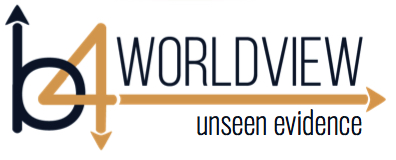
Key Thought for this session:
“Lack of TRUST reduces the effectiveness of my community.”
Let’s start with: “Why do we need to live in community?” Of course, there is a good practical reason—just the fact that typically a GROUP of people can accomplish more than one person can. The variety of skills and knowledge and the sheer amount of human labor provides life’s necessities that no one could obtain by themselves. You might say that community makes our physical life better by the comforts and protection it affords us. The fact is that it takes a community to provide all sorts of needs that no single one of us can provide all by our self (such as food, medical provisions, and housing). Also, communities develop and rely on many different institutions to meet needs, like schools and businesses. The point being, it is obvious to us that there are significant advantages to being in communities that function well.
The soul is also nourished by community. Your community provides you with what sociologists call your social identity. While your personal identity satisfies your desire to be unique and special, your social identity enlarges your presence in the world and satisfies the need to affiliate, or belong, and to be accepted and loved. This is an interesting tension between personal and social identity that experts have found influences much of the soul’s satisfaction. To be loved and accepted is a fundamental longing of the human soul and belonging to a community can help satisfy that desire. While the need for community is pursued to resolve the soul’s need for belonging, some people believe their social identity is also satisfied by spirit life. You may feel this way too. It can be part of your worldview.
Members of a community draw virtue from their community. In your social setting, you understand how the community satisfies and works for the betterment of life. The virtue of a community comes from how the community’s worldview deals with ... What is “right”? or “fair,”? or “good”? within the community ... AND What is “wrong”? or “bad”? Answers to these questions are often related to how POWER is viewed within a community. In addition to how power distributes goods and services within the community, power sets laws, standards and determines how decisions are made.
There are two fundamental ways relationships are governed in a community. Some relationships exist because of a balanced exchange that benefits each person, also called an “exchange-based relationship”. Either the relationship remains good and intact because each person receives from the other something that is beneficial, or if not, then the relationship becomes strained and often ends. Or as some people say, “You do for me ... I’ll do for you.”
This type of relationship is especially evident when an individual decides that the benefit of being in a relationship is no longer worth the cost of maintaining that relationship. For example, an employee becomes dissatisfied with conditions at work and decides to quit her job; or a teenager runs away from home because they perceive it is no longer to their advantage to stay there, or in when someone gets divorced because they think the other person is not giving as much as they are to the relationship.
An alternative to exchange-based relationships occurs when someone FREELY CHOOSES to be in relationship with someone else for reasons other than the benefits of exchanges that take place among them. Usually, the motivation for this dynamic is not based on what I get out of it, but based on what the other person gets out of it—even if it costs me a lot and I personally get no benefit from it. For example, consider a mother who often allows herself to be inconvenienced in order to make sure her infant is properly fed and clothed and safe. The mother is usually not doing this because of what she gets out of it from her baby (because what she gets are a lot of nights with lack of sleep, financial strain, less time to be with friends, a whole lot of times when she has to care for her baby and she is just not up for it), but she does all this because it is important to her that her baby is properly cared for—this is a relationship she is committed to, regardless of how difficult it becomes.
The exchange based worldview of power comes in two forms depending on how power is viewed by those in authority. The first, we will call Type 1 or autocratic, and is best described like this.
In this worldview those in authority use their power to take from others for their own personal gain. This exchange between those who have power and those who don’t is called “win – lose”. This means those who have power win and those who don’t lose because those who have leverage or control acquire goods through the threat of punishing those who don’t. Those in power generally suppress the rights of those who do not have power. While type 1 relationships seem one-way and do not appear to be an exchange, subjects do receive something of value that keeps them in the relationship. Depending on the whims of those in authority, subjects receive stability and protection when they conform to the expectations of authority. Type 1 communities are generally a form of anarchy such as cults, gangs or mafia. Those in power in Type 1 communities are influenced by their own pleasure and greed and use punishment to prey on the fear of others. Since fear affects how you would act in a type 1 relationship, let’s look at your worldview on fear by seeing what you fear the most.